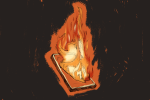The #ShareYourRejections trend has brought authors, actors and others to take to Twitter and share the rejections that they’ve experienced in their careers.
Spoiler alert: Most people have experienced a lot of rejection. Like, a lot. More than you’d expect.
The Famous Ones
Tomi Adyemi and Hank Green are both YA authors (Green’s book is coming out later this year, but his fans are already hyped about it) and both went public about the failures they struggled with.
I once applied for a job at the non-profit where my girlfriend was working. I was visiting one day and overheard the manager mocking an application point-by-point. Only I knew that it was my application. #shareyourrejections
— Hank Green (@hankgreen) August 16, 2018
before CBB, i spent 4 years on a book that racked up 60+ rejections from agents
thought my big break would come when i won a query contest that would display my query for agents alongside 9 others, but i ended up being the only winner to receive 0 requests#shareyourrejections
— TOMI (@tomi_adeyemi) August 16, 2018
Often when you observe celebrities or read a really good book (“Children of Blood and Bone,” anyone?) it’s easy to assume that good work is instantly recognized and that no one writing something that good could get rejected. But these tweets and this trend show just the opposite: Failure is a part of being a person. And for being a writer? It’s about 90 percent of it.
It was almost hard to believe that Roxane Gay, a prolific writer of both literary fiction and powerful social criticism, could have ever been rejected from any kind of workshop. Yet, the rejections she wrote about weren’t faraway, pre-success concepts. She wrote about rejections that had come to her recently despite her fame.
https://twitter.com/rgay/status/1029922448467054593
In one of her more poignant tweets, Gay wrote, “I applied for the UCLA job in fiction last year or the year before and didn’t even get a phone interview. Whew!” In showing that even great writers like herself get rejected all the time, she brings herself into sharp relief with certain other examples of this hashtag.
Funny Rejections
#ShareYourRejections Article reviewer wrote to me that Sarah Purcell (who is me) has done this better.
— Sarah J. Purcell (@SarahJPurcell) August 16, 2018
This historian’s anecdote about an article reviewer panning her work in favor of the writing of “another historian” who actually turned out to be the original historian herself betrays the sense of absurdity that some professional or artistic rejections can have.
Food for Thought
Wary of the ways #ShareYourRejections is sounding a bit like triumphalism in the form of a chorus of "i tried, failed, tried, succeeded." I hope these "failures" remind that these institutions are not designed to host us all. We need to make other ways.
— claire schwartz (@23cschwartz) August 16, 2018
Some participants noticed that the tweets in question mostly addressed a story about failure immediately followed by mainstream success — for example, getting a mainstream publisher to buy their book.
But “these institutions are not designed to host us all,” explained this Twitter user, who encouraged people facing rejection to create their own avenues to find success or reach people with their creative work.
https://twitter.com/priya_ebooks/status/1030075771036033025
Another writer on Twitter wanted to acknowledge the writers and creators who work hard and simply do not succeed, those who still haven’t “found a home” for their work or gotten hired. It can be harder to share your failures when you don’t have a success to “back it up,” but that is the most important lesson of this hashtag.
Failure is a part of life, not just a setback on the path to success. In careers that are creative and lead to a lot of experience with rejection, supporting your fellow creators is paramount to the foundation of a good community.
That’s what this hashtag is really about. So be brave — by all means, share your rejections, even if you haven’t found a big success to punctuate the whole thing yet.

















